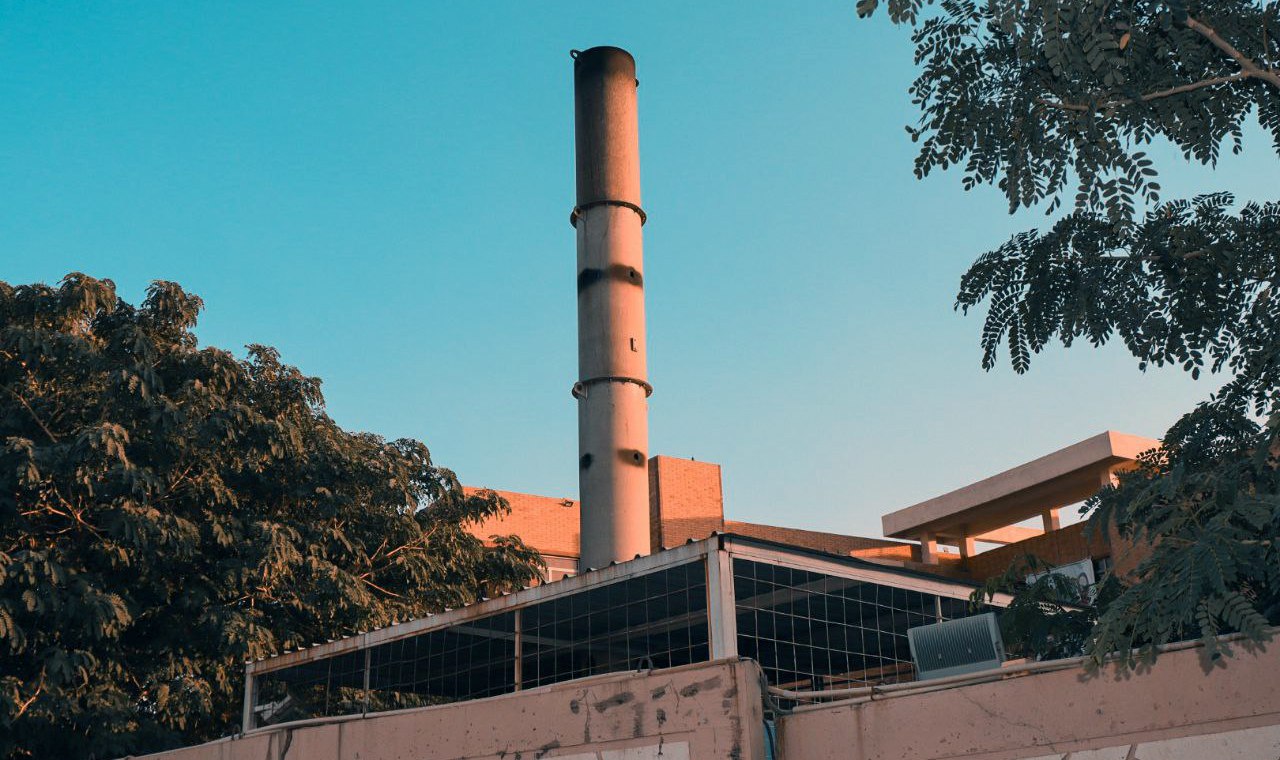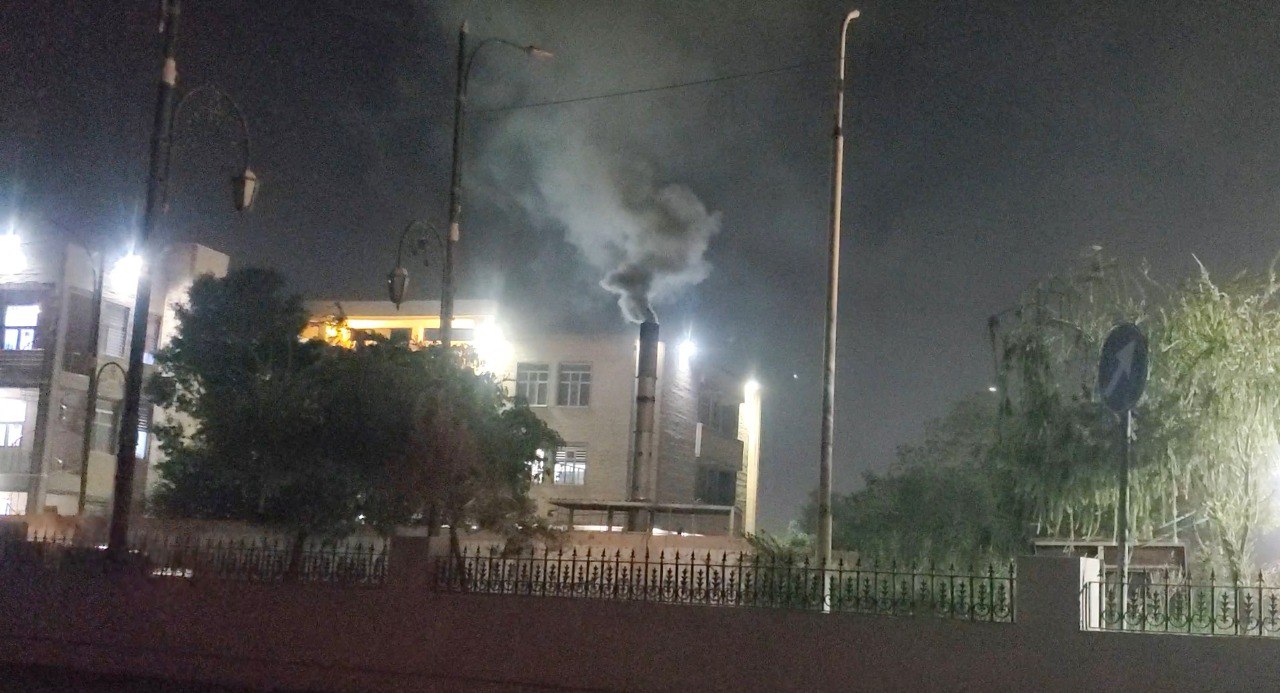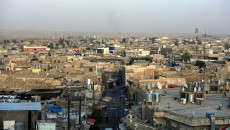Every week, clouds of dark, chemical-laden smoke drift from the lower area of Shorjah in eastern Kirkuk toward Mosul Road and the western districts, creating what many residents consider a grave threat to public health and the environment.
The incinerator used by the cancer treatment center has turned into a constant hazard—polluting the air, water, soil, and even nearby green spaces.
Located at the entrance of Panja Ali Street, near the statues of Mama Risha and the Four Brothers, the center consists of two buildings: an older structure that once served as the city’s traffic office (known as Balda) and a newer three-story block built with support from the local administration and various donors.
Between 50 and 100 patients visit the center every day for cancer treatment or immune-related illnesses, in addition to many others coming for various lab tests—yet the incinerator sits directly in the courtyard, sending fumes toward the surrounding areas, in particular those seeking medical care.
“This smoke is extremely dangerous, both for public health and for our own staff,” said Dr. Niyaz Ahmad, director of the cancer treatment center.
The surrounding area includes car repair shops, a national market, and a scrap-metal square. Along the exterior wall, fruit and vegetable vendors set up their mobile stalls.
Kirkuk province contains five major crude-oil-producing fields—Avana, Bay Hassan, Baba Dome, Jambur, and Khabaza—all operated by the Iraqi Government’s North Oil Company.
In 2023, crude oil shipped from these fields via pipelines and storage tanks totaled more than 29.5 million barrels, generating over 2.8 billion USD in revenue.
Located 238 kilometers north of Baghdad, Kirkuk holds Iraq’s second-largest oil reserves and is home to 1.7 million residents, including Arabs, Kurds, and Turkmens. The province has long been a focal point of territorial disputes between Baghdad and Erbil.
Video: The furnace of Cancer Treatment Center while operating at night
Darawan Jassim, a 33-year-old resident living four streets away, said, “It really affects us. Our air is already polluted from the nearby oil wells, and now the hospital adds even more smoke.”
The furnace is fired up once or twice a week, depending on how much waste has accumulated. Each session lasts about an hour to an hour and a half, spreading fumes across the district.
Nasrin Jihad, 57, from Kabana in Bulagh—about two kilometers from the center—expressed frustration. “Why do they burn medical waste inside a hospital? Are they treating people or poisoning them?”
According to the Swiss air-quality company IQ Air, 90% of Iraq’s population breathes polluted air, making it one of the most contaminated environments in the world. Globally, seven million people die prematurely from air pollution each year.
Environmental expert Dr. Mohammed Khazr explained that burning medical waste releases dangerous gases such as dioxins and furans, both highly carcinogenic and harmful to humans and animals.
He added that environmental regulations require medical incinerators to be located outside city limits to avoid exposing residents to toxic emissions—yet this guideline is not being followed.
The cancer center’s property includes a large parking area and limited greenery—just a small, roughly 200-square-meter garden with a few trees near the old building.
All incinerators across Kirkuk also fail to meet environmental safety standards.
Abbas Abdullah, who lives a few hundred meters from the facility, said the incinerator operates mostly at night. “It’s an awful scene, and it causes so many diseases,” he said.
He questioned how the authorities have allowed the issue to persist and urged the administration to act.
“How can a place meant for cancer treatment be allowed to release toxic fumes over the city at night?” he asked.

The United Nations ranks Iraq as the fifth most vulnerable country to climate change, with environmental issues ranging from oil and gas operations to the improper handling of 12 million tons of waste—13% of which is openly burned each year.
The Ministry of Health reported that in 2024 alone, the Kirkuk Cancer Treatment Center recorded 1,276 solid tumor cases and 1,628 blood-related illnesses, including hemophilia. Lung cancer is the second most common cancer in Iraq.
Ali Ezadin, director of the Kirkuk Environmental Office, observed that none of Kirkuk’s medical waste frunace—including Azadi Hospital, the Republic Hospital, and the center in Sayada—have valid environmental permits. While some receive warnings, fines, or closure orders, he said, “In reality, they cannot be shut down.”
Kamran Qadir, 37, a Shorjah resident, said the burning produces a foul smell that spreads across the neighborhood and the local market.
The director of the Kirkuk Environmental Office believes the problem is solvable. Furnaces commonly use grinders to reduce waste volume before burning it. A 10-kilogram batch becomes about two kilograms, reducing risk by roughly 90%.
In March, the Kirkuk administration approved the purchase of two specialized recycling machines to handle medical waste using modern methods instead of incineration. It also allocated 500 million Iraqi dinars IQD for medicine and supplies for the cancer center.
“We’ve been promised a new device to reduce the smoke,” said Dr. Ahmad. “I’ve requested a grinder that meets international standards. It needs to be placed outside the city and equipped with proper filtration.”






